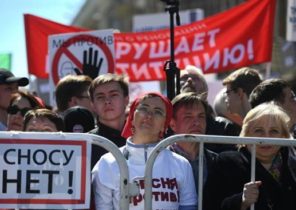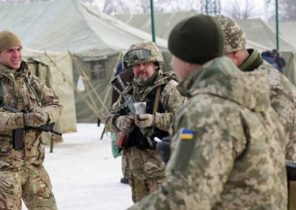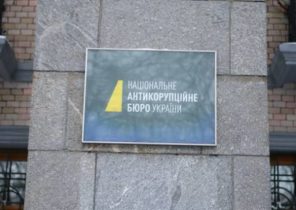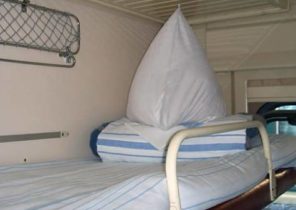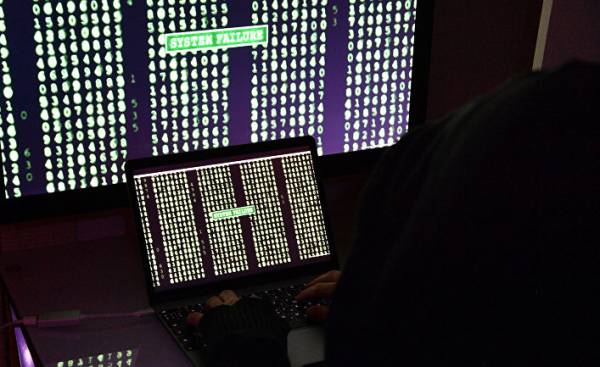
Finland responds to Russian threat increased expenditure on the army and the conclusion of bilateral agreements in the field of defence. The people of this country remains firmly opposed to NATO membership, but the vast majority of Finns are ready to fight for their country.
The defence Forces of Finland will soon be a brand new source of intelligence information. The country goes through part of the cross-border data cables that connect the Russian Internet with Western Europe, so the army will place its network in this flow of information. Already started the necessary reforms in the laws on military intelligence.
This is one of the measures by which Finland is adapting to a new era in international politics after the annexation of Crimea. Big step towards that Finns did in April, when representatives of the EU, NATO and the eight individual States, including Latvia, arrived in Finland to sign the Memorandum on the establishment of European excellence centre for combating a hybrid threat. Same as posted in Latvia an advanced NATO Stratcom centre, the new centre in Finland will organize international exercises and other ways to develop cooperation between States in order to build resilience against attacks, which use misinformation, cyber attacks, or even military force, but at the same time, the aggressor avoids a formal Declaration of war.
“The struggle of the EU against cyber attacks is important to NATO and Vice versa. Our unity and success are inextricably linked,” — said at the signing of the Memorandum, the Minister for foreign Affairs of Finland Timo Soini. Senior researcher, Institute for international relations Kristi Raik said: for a small country it is desirable to specialize in any field that the others perceived her as an important partner. As an example, he cited the NATO Center for cyber defense in Tallinn, who “helped Estonia to become a specialist in cybersecurity, and this is appreciated by large partners, particularly the United States.” The Finns are ready to follow that example. “Employees of the government of Finland has suffered from cyber attacks and information warfare. It is clear that we must do for the good of the cause”, said Rijk.
For Finland this is great news. The full-fledged accession to NATO is believed to be risky and complex, but want to find other avenues of military cooperation with Western countries. Published in February, the government report on the security of the key partners of the Finnish state called Sweden and the United States.
In October last year, Finland and the United States signed a Declaration of intent, expressing readiness to strengthen bilateral cooperation in the defense sector. Between the two countries already collaborate in the conduct of military exercises. With Sweden the action plan signed in 2014, when both countries of Northern Europe began to cooperate more closely with NATO as the Alliance partners.
The report of the government of Finland provided not only strengthening ties with partners, but also increase defense spending.
It is planned to replace the old fighters and ships of the fleet, and to develop rapid response units to improve the combat readiness of the army. Replacement fighter jets could cost 7-10 billion euros. Now the Finns spend on the defense of 1.37% of GDP, or 2.9 billion euros per year.
Church bells commemorate Aleppo
After the in 2014 Russia annexed the Crimea in Finland has inflamed the debate about national security policy. Information warfare, the violation of the boundaries of the airspace and Russian citizens purchased land in strategically important areas — causing headlines in the media forced to turn to Russia created the threat in everyday conversations. Contributed literature. Speaking about Russia, people often mention Ilkka Remes, a popular writer, who describes the horror scenario of a hybrid war and international intrigue.
The Lutheran Church of Finland last year also indirectly spoke about the foreign policy of Russia. In October, more than 200 Finnish churches for two weeks every day in the cemetery rang the bell, remembering those killed in the raids on Aleppo. The action was joined by hundreds of churches overseas. The former President of Finland Tarja Halonen mentioned it at a meeting of the Valdai club in Moscow, that Vladimir Putin was forced to respond to the sarcastic remark: why not remember the Church bells of civilian casualties in other places as Syria, Afghanistan and Yemen?
At the same time in Finland is clearly a sense of reluctance to act with loud statements about Russia. The Baltic was the attitude of the Finns sometimes seems strange. “In the Baltic States inhabitants about the Russian threat, speak very directly, very much and very dramatic. In Finland a long tradition — to talk about this dusky, without exaggeration”, — said the expert rayk, nationality she is half Estonian.
For example, rayk mentioned early 2016, when over a thousand asylum seekers suddenly crossed the border of Finland from Russia. In the end the problem was solved by bilateral agreements. “Experts in the field of security policy took this as an indication of Russia that in case of need it will be able in various ways to create problems for Finland, said Rijk. — However, the public debate was not clearly stated that this was the cause of the influx of asylum seekers that Russia wanted to demonstrate: this is worrying”.
From the point of view of the Baltic States, it seems strange that the President of Finland communicates regularly with the President of Russia. “It’s not like in other European countries,” said Rijk. “In Finland think that we have a special role in reducing tensions with Russia. The Baltic States these contacts seem suspicious. People doubt whether Finland has a General policy of the EU or is it ready to cede to Moscow”, — the expert continued. The last such meeting took place in March, when the President of Finland visited the Arctic forum in Arkhangelsk, in the panel discussion which was also attended by Putin. Year ago Finnish President went to Moscow, where bilateral negotiations the issue was resolved the sudden influx of asylum seekers across the border.
However, the government of Finland to clearly and repeatedly condemned Russia’s actions in Ukraine and supported the imposed against Russia sanctions. “It is not easy to support sanctions, to maintain a firm stance on the issue of Ukraine and at the same time to maintain good bilateral relations with Russia. Moscow is also trying to use these meetings to demonstrate that the EU is not really United,” said reik.
Sensitive and controversial topic in the debate on security policy of Finland, the planned construction of a nuclear power plant. Implementing the Fennovoima company is partly owned by “Rosatom”. The government will take a decision on the construction permit no earlier than 2018, but infrastructure and auxiliary facilities have already begun. According to critics, this project will give the Kremlin new opportunities to influence the energy security of Finland.
“Of course, influencing the government through the energy policy is one of the techniques of the foreign policy of Russia, but in Finland it is discussed as not related to the policy in the sphere of security issue. This is another example of the differences of Finland on the Baltic States,” said Kristi Raik.
From apathy to hysteria
Many Finnish politicians would prefer not to discuss the security of the state, according to a popular specializing in defense matters blogger Jane Ihalainen. “It is easy to set voters against him, and new voters fail to draw, he said. — A politician from the green party OSMO Soininvaara said: every time you publicly mention NATO, losing thousands of voters.”
Ihalainen recognizes that the Finns took more time to rebuild their world under the new realities after the annexation of Crimea: “in the Beginning we were arguing if it was true. After arguing about why it happened. And now, perhaps, the plumb Bob moved from apathy to hysteria. Sometimes people see foreign information warfare, even where it is not.”
Despite the fact that the world has changed, the views of inhabitants of Finland on the issues of defence remained almost the same as before. The majority of Finns want to join NATO. Against the country’s membership in NATO, about 60% of Finns, and only 25% believe that Finland should join the Alliance, according to a study, which is regularly the Advisory Board of the Parliament on defence matters. In 2014, the proportion of opponents of NATO declined from 70% to 60%, but since then it has not changed significantly.
32% of respondents expressed the opinion that membership in NATO would improve Finland’s security, in turn, 36% of respondents believe that it will only go in her to harm. “And among the elite policy makers in the field of security, different views on the value of NATO membership. But since the beginning of the Ukrainian crisis, the government was clear: now is not the moment to consider the possibility of accession to the Alliance. This is motivated by fear of Russia’s reaction to such a decision, which will reduce the security of the state, at least in the short term,” said Rijk. In her view, Finland will not apply for NATO membership, while the relations between Russia and the West will be intense.
But Finns support the direct bilateral cooperation in the defense sphere with the USA is positive about 64%. Almost all support military cooperation with the countries of Northern Europe. The proximity to the Nordic countries is also reflected in political decisions. The government report on security stated that Sweden has a special status in bilateral cooperation, and to deepen it stipulates no restrictions.
But the strongest pillar of defence of Finland is the determination of the Finns to death to stand for their land. On the question of readiness to defend itself by military means under any circumstances, even in case of uncertain outcome, in the last 20 years was always answered in the affirmative 70-80% of Finns.
Residents of Finland also supported the increase of military spending: in the last poll voted for it 47% of respondents, and 41% in favor of retaining the current level of defense spending. In 2014, support to increase the defense budget has increased from 32% to 56%.
Ihalainen said: Finland is now connected with the West’s multilateral security system as deeply as possible outside NATO. Polls about NATO simply reflect the national identity of a neutral state. It is impossible quickly to change.
Himself Ihalainen is a good example of this. Like many Finnish men, he at one time was compulsory military service, and later changed his view: he became an active pacifist and refused to remain part of the reserve. “I was against the membership of Finland in NATO. Then my opinion on this issue changed to “may be”, says Ihalainen. The former pacifist had found a place in the structure of military defense as a consultant of the parliamentary Council.
Change your relationship Ihalainen aptly described in a recently published book, which has gained popularity. Being a punk at the time, he protested against the existing system to support openness, pluralism and international cooperation. Now, when Russia is strengthening the extreme left and extreme right-wing movement in Europe with the aim of weakening the EU and promoting distrust in society, Ihalainen came to the conclusion that in order to continue to protect their former values and freedom, we have to protect also build their state.
With regard to hybrid threats, Ihalainen said an important decision the amendment of some laws, which were obsolete in the new situation. “All these little changes are also our great reform!”, he says. The laws are updated in many areas — from changes in the terms of land acquisition to the rules governing the gathering of intelligence. “Society is moving towards an era, which may not be war, but there will be no real peace”, — the expert added.
